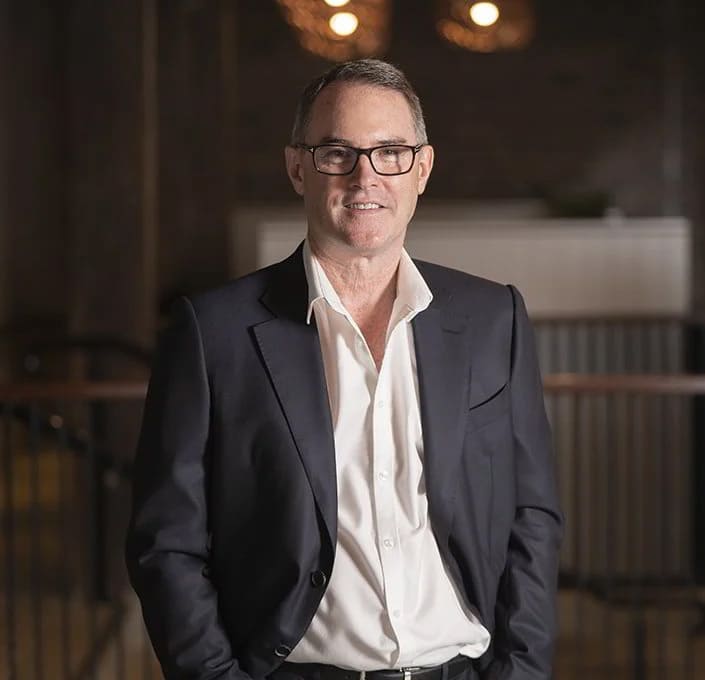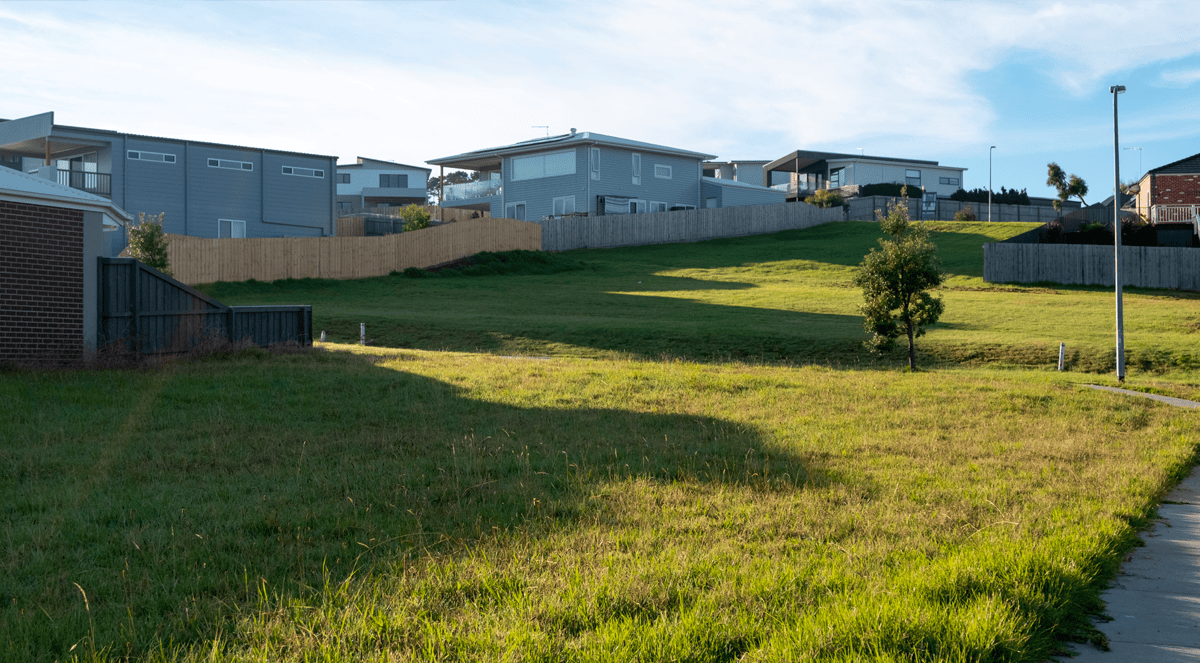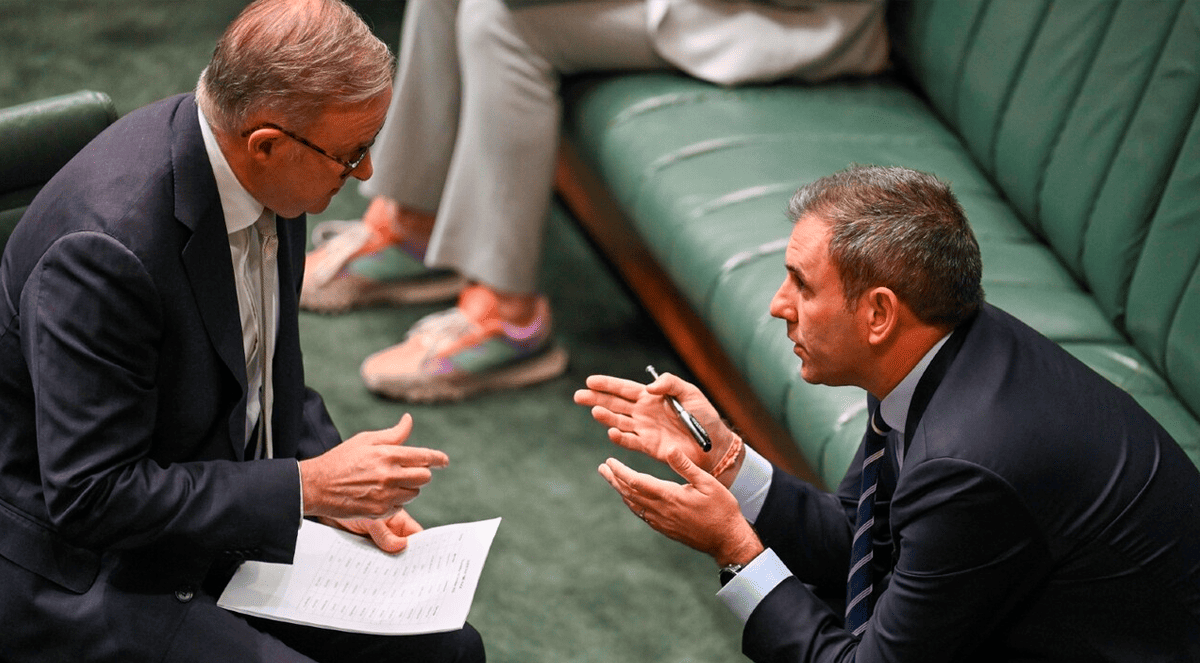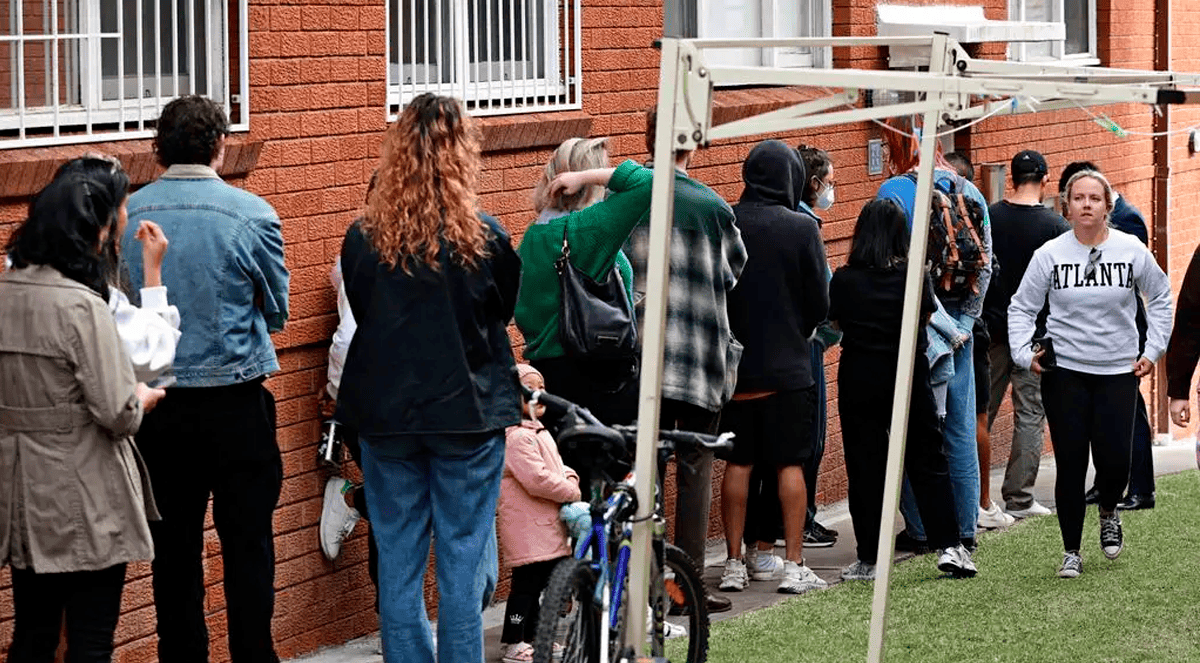Features > Property News & Insights > Market updates
Baby Boomers: Cashed up and looking to buy property

KEY POINTS
- Real estate guru John McGrath says many Baby Boomers are planning to buy investment properties this year
- The CEO of McGrath Estate Agents says Boomers are unlikely to wait until interest rates are cut, as many can invest without needing loans
- Mr McGrath says Boomers will target properties at the bottom of the market where there is good value and rental returns are healthy
- John McGrath says cashed-up Boomer parents are also helping bankroll their children’s first home purchases through what’s known as “the Bank of Mum and Dad”
One of Australia’s most astute property observers is predicting many cashed-up Baby Boomers will purchase investment properties this year, targeting homes at the lower end of the market.
John McGrath, the CEO of McGrath Estate Agents, says he believes a more settled interest rate climate in 2024 will see more Boomers enter the market to acquire an investment property.

Boomers
“Baby Boomers” are the generation born between 1946 and 1964, during the postwar economic boom.
Social research company McCrindle says they make up nearly 25% of the Australian population, but they hold more than half (53%) of the nation’s wealth.
The 2021 Census showed Boomers have very high levels of home ownership, at more than 75%.
They’ve seen their homes appreciate in value - perhaps by four or five times over the medium to long term - creating a golden retirement scenario for many.
The overwhelming majority of Boomers who own their own homes also don’t have a mortgage, so they’re not bothered when the Reserve Bank of Australia increases interest rates - in fact, that gives them higher interest on their cash savings.
McCrindle says its research has found the top hope of this generation is “full financial freedom and independence”.
This squares with John McGrath’s assessment that Boomers are interested in property for “ongoing investment”.
“Wealthy people have to put their cash into something and bricks and mortar is an asset class that people understand, and it has an exceptional history of delivering reliable capital gains over the long term in our country,” he writes in The Real Estate Conversation.
“I think a plateauing of interest rates this year will see more Baby Boomers looking to acquire an investment property,” he declares.
As for timing, John McGrath says “I think they will see the window prior to rate reductions as the time to jump into a new investment.”
“The lower end of the market, which investors typically target, has not done as well as the top end over the past year, so there is good value buying available today and rents are very high.”
Cashed up
John McGrath says Baby Boomers are able to invest with little or no borrowings.
As well as the wealth they’ve accumulated during their own lifetimes, many Boomers are also on the receiving end of big wealth transfers.
“Baby boomers are also starting to inherit their parents’ assets, so I think there’s a huge amount of wealth concentrated within this group, and I believe it’s one of the reasons why the property market is holding up so well,” Mr McGrath says.
And for evidence of that wealth, he says you don’t have to look very far.
“It’s also why consumer spending isn’t flatlining in today’s inflationary economy,” he says, pointing to spending data from the Commonwealth Bank published in November last year which showed spending per capita was higher than the rate of inflation in only one age group – those aged 70 years and over - primarily Baby Boomers.

The Bank of Mum & Dad
John McGrath also believes Boomers are behind one of the more unusual phenomena in the current residential real estate market.
“The rate of first home buying today is increasing, despite high interest rates and cost of living pressures, which typically have a disproportionate impact on younger people,” he says
The reason for this?
The so-called “Bank of Mum and Dad”.
“After experiencing such massive wealth generation through home ownership themselves, (Baby Boomers) are actively encouraging younger family members to buy their own homes, too," he writes, “And they have the spare wealth to help them out financially.”
In November last year, investment bank Jarden estimated gifts, loans, and guarantees from the “Bank of Mum and Dad” had injected about $2.7 billion into the property market in the previous 12 months.
It said around 15% of Australian borrowers were getting assistance from their parents, while the average loan or gift was around $70,000 – or 9% of the median dwelling value.
Downsizing
Baby Boomers are also busy in the real estate market when it comes to “downsizing.”
This is the trend where “empty nester” Boomers sell their large family homes for smaller homes that require less maintenance and in John McGrath’s words “allow more lifestyle and recreation”.
“Downsizing is a great way for baby boomers to cash in on the capital gains their homes have amassed over decades of ownership,” he says.
Boomers also get government incentives to move to smaller homes.
Australians aged 55 and over are allowed to contribute $300,000 (or $600,000 for couples) from the sale of their family home to their superannuation accounts.
So not only do they receive an immediate tax-free cash “hit” from the sale of their larger home, but they are able to substantially boost their future retirement incomes.
Expect to see more cashed-up Boomers turning up to auctions of well-located, well-maintained smaller properties and outbidding first-home buyers.
“The sheer size of this generation, along with their collective wealth amassed mainly through home ownership, makes them a powerful demographic in economic terms,” says John McGrath, “And from a housing perspective, it’s a group of people that is highly motivated to transact.”
As head of one of the country’s largest real estate chains and as a Baby Boomer himself, 60-year-old John McGrath should know about the love affair his generation has with Australian residential property.
Stay Up to Date
with the Latest Australian Property News, Insights & Education.




.png?width=292&height=292&name=Copy%20Link%20(1).png)
 SIGN UP FOR FREE NEWSLETTER
SIGN UP FOR FREE NEWSLETTER







%20Scott%20Kuru%20DPU%20145.jpg?width=1920&height=1080&name=Senate%20Inquiry%20Forced%20the%20RBA%20to%20Admit%20the%20Housing%20Crisis%20Will%20Never%20Be%20Fixed%20(It%20Was%20All%20a%20Lie)%20Scott%20Kuru%20DPU%20145.jpg)



%20Scott%20Kuru%20DPU%20141.jpg?width=1920&height=1080&name=The%20Senate%20Just%20Exposed%20Australias%20Biggest%20$80%20Billion%20Housing%20Fraud%20(Inquiry%20Launched)%20Scott%20Kuru%20DPU%20141.jpg)




%20Scott%20Kuru%20DPU136.jpg?width=1920&height=1080&name=Aussies%20Just%20Got%20Hit%20With%20Double%20Taxes%20on%20Everything%20(This%20Has%20Gone%20Too%20Far)%20Scott%20Kuru%20DPU136.jpg)


%20Scott%20Kuru%20DPU%20133.jpg?width=1920&height=1080&name=JUST%20IN%20Something%20Major%20Just%20Flipped%20Australia%E2%80%99s%20Property%20Market%20for%202026%20(No%20One%20Saw%20This%20Coming)%20Scott%20Kuru%20DPU%20133.jpg)


.jpg?width=1920&height=1080&name=Rental%20Prices%20At%20Record%20Highs%20And%20Vacancy%20Rates%20At%20All%20Time%20Lows%20(New%20Data%20Reveals).jpg)
%20%20DPU%20EP%2014.jpg?width=1920&height=1080&name=Investors%20Shutting%20Out%20First%20Home%20Buyers%20(Investors%20At%20Record%20Highs)%20%20DPU%20EP%2014.jpg)

.jpg?width=1920&height=1080&name=Darwins%20Property%20Market%20Boom%20or%20Dangerous%20Gamble%20(REVEALED).jpg)

.jpg?width=1920&height=1080&name=The%20RBA%E2%80%99s%20Rate%20Cut%20Could%20Explode%20House%20Prices%20(Here%E2%80%99s%20Why).jpg)








.jpg?width=1920&height=1080&name=Warning%2c%20You%20Might%20Be%20Facing%20Higher%20Taxes%20Soon%20(1).jpg)




.png?width=1920&height=1080&name=Rate%20Drops%20Signal%20BIGGEST%20Property%20Boom%20in%20DECADES%20(1).png)

.jpg?width=1920&height=1080&name=Labor%20vs%20Liberal%20These%20Housing%20Policies%20Could%20Change%20the%20Property%20Market%20Forever%20(1).jpg)
.jpg?width=1920&height=1080&name=QLD%20Slashes%20Stamp%20Duty%20Big%20News%20for%20Investors%20%26%20Home%20Buyers%20(1).jpg)
.jpg?width=1920&height=1080&name=Trump%20Just%20Slapped%20Tariffs%20%E2%80%93%20Here%E2%80%99s%20What%20It%20Means%20for%20Australia%20(1).jpg)
.jpg?width=1920&height=1080&name=Federal%20Budget%202025%20More%20Debt%2c%20No%20Housing%20%E2%80%93%20Here%E2%80%99s%20What%20You%20Need%20to%20Know%20(1).jpg)
.jpg?width=1920&height=1080&name=Australias%20Housing%20Crisis%20is%20about%20to%20get%20MUCH%20Worse%20(New%20Data%20Warns).jpg)
%20(1).jpg?width=1920&height=1080&name=Australias%20RENTAL%20CRISIS%20Hits%20ROCK%20BOTTOM!%20(2025%20Update)%20(1).jpg)
%20(1).png?width=1920&height=1080&name=Is%20Adelaide%20Still%20a%20Good%20Property%20Investment%20(2025%20UPDATE)%20(1).png)
.jpg?width=1920&height=1080&name=RBA%20Shocks%20with%20Rate%20Cuts!%20What%E2%80%99s%20Next%20for%20Property%20Investors%20(1).jpg)
%20(1).jpg?width=1920&height=1080&name=I%20Predict%20The%20Feb%20Rate%20Cut%20(My%20Price%20Growth%20Prediction)%20(1).jpg)
.png?width=1920&height=1080&name=Why%20Property%20Prices%20Will%20Rise%20in%202025%20Market%20Predictions%20(1).png)
.jpg?width=1920&height=1080&name=Why%20Investors%20Are%20Choosing%20Apartments%20Over%20Houses%202%20(1).jpg)
.jpg?width=1920&height=1080&name=Why%20Rate%20Cuts%20Will%20Trigger%20A%20Property%20Boom%20(1).jpg)
.jpg?width=1920&height=1080&name=Retire%20On%202Million%20With%20One%20Property%20(Using%20SMSF).jpg)
.jpg?width=1920&height=1080&name=4%20Reasons%20Why%20You%20Should%20Invest%20in%20Melbourne%20Now%20(1).jpg)
%20(1).jpg?width=1920&height=1080&name=Old%20Property%20vs%20New%20Property%20(Facts%20and%20Figures%20Revealed)%20(1).jpg)
%20(1).jpg?width=1920&height=1080&name=Will%20The%20New%20QLD%20Govt%20Create%20a%20Property%20Boom%20or%20Bust%20(My%20Prediction)%20(1).jpg)
%20Scott%20Kuru%20(1).jpg?width=1920&height=1080&name=Inflation%20Hits%20Three-Year%20Low%20(Will%20RBA%20Cut%20Rates%20Soon)%20Scott%20Kuru%20(1).jpg)
.jpg?width=1920&height=1080&name=How%20to%20Buy%20Investment%20Property%20Through%20SMSF_%20The%20Ultimate%20Guide%20(1).jpg)
.jpg?width=1920&height=1080&name=Victoria%20Slashes%20Stamp%20Duty%20Melbourne%20Set%20to%20Boom%20Scott%20Kuru%20(1).jpg)
.png?width=1571&height=861&name=Are%20Foreign%20Buyers%20Really%20Driving%20Up%20Australian%20Property%20Prices%20(1).png)
.jpg?width=1920&height=1080&name=The%20Single%20Factor%20That%20Predicts%20Property%20Growth%20Regions%20(1).jpg)
%20Scott%20Kuru%20(1).jpg?width=1920&height=1080&name=My%20Prediction%20On%20Rates%20%26%20Negative%20Gearing%20(Market%20Crash)%20Scott%20Kuru%20(1).jpg)

-1.png?width=1920&height=1080&name=Major%20Banks%20Cut%20Rates%20Will%20RBA%20Follow%20Suit%20(Sept%20Rate%20Update)-1.png)
%20Scott%20Kuru-1.png?width=1920&height=1080&name=Rate%20Cut%20Coming%20What%20New%20Zealands%20Move%20Means%20for%20Australia%20(Sept%20Prediction)%20Scott%20Kuru-1.png)
%20(1).jpg?width=1920&height=1080&name=Buy%20when%20the%20interest%20rates%20are%20high!%20(Why%20you%20must%20buy%20now!)%20(1).jpg)
.jpg?width=1920&height=1080&name=Carms_Revised%20Taxes%20Due%20Aug%209%20YT%20Thumbnail02%20(1).jpg)
.jpg?width=1920&height=1080&name=Carms_Too%20Little%20Too%20Late%20Aug%207%20YT%20Thumbnail01%20(1).jpg)









.jpg?width=1920&height=1080&name=Carms_Rate%20Drop%20In%20July%20Jun%2010%20YT%20Thumbnail02%20(1).jpg)
.jpg?width=1920&height=1080&name=Carms_Own%20a%20Property%20V6%20Jun%205_YT%20Thumbnail%20(1).jpg)









.png?width=1920&height=1080&name=Artboard%201%20(3).png)






.jpg?width=1920&height=1080&name=YT%20thumbnail%20%20(1).jpg)

